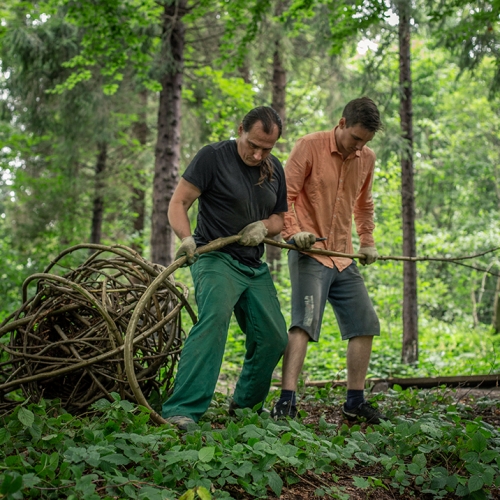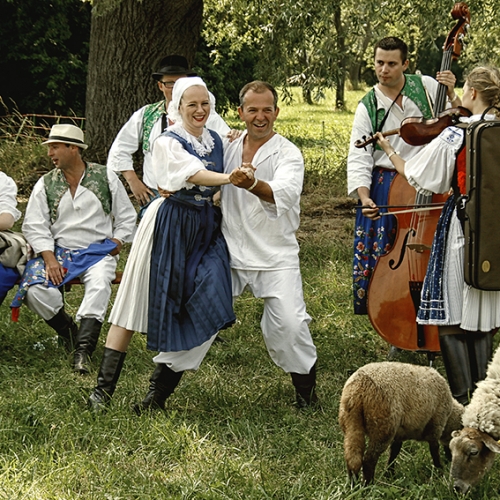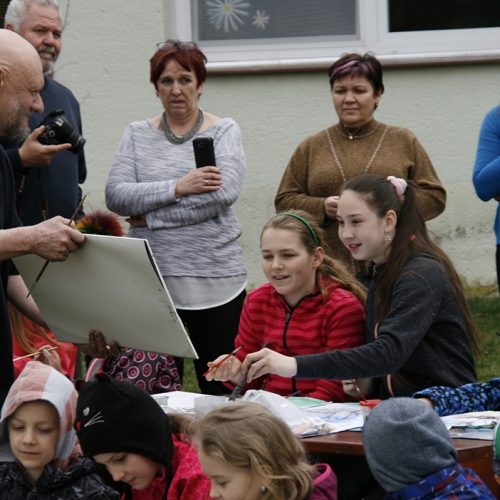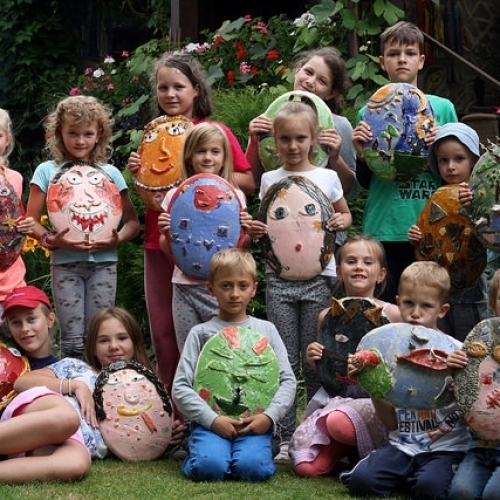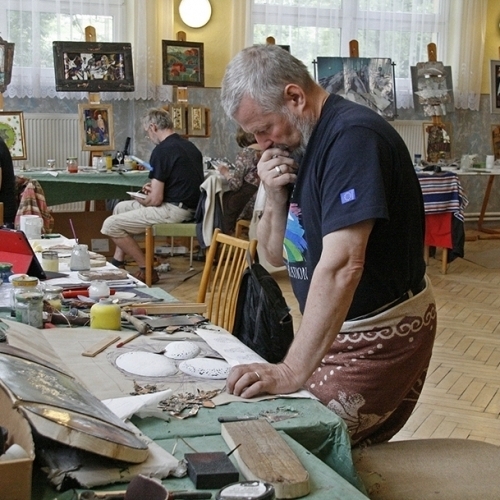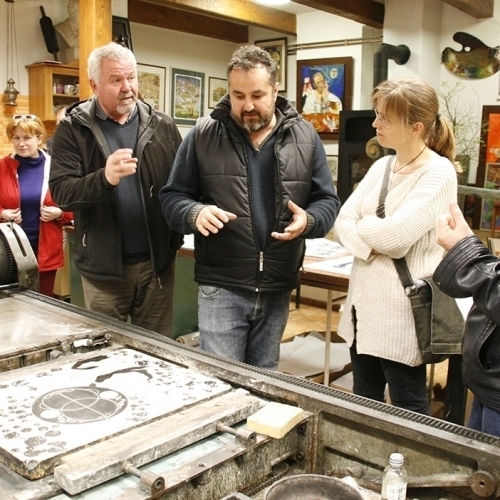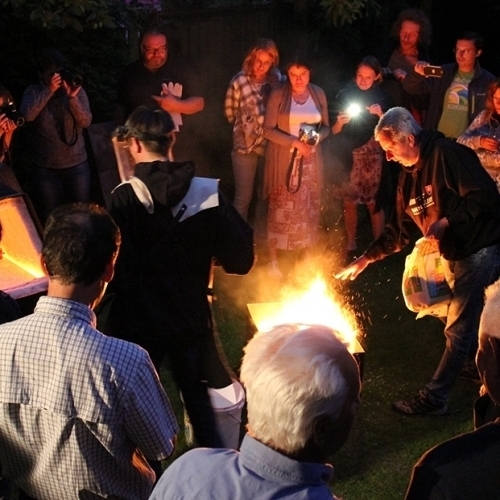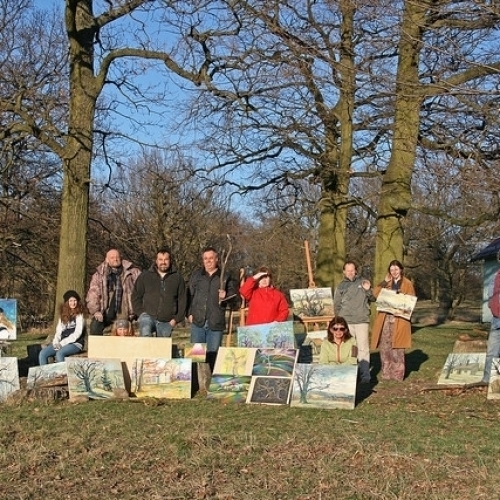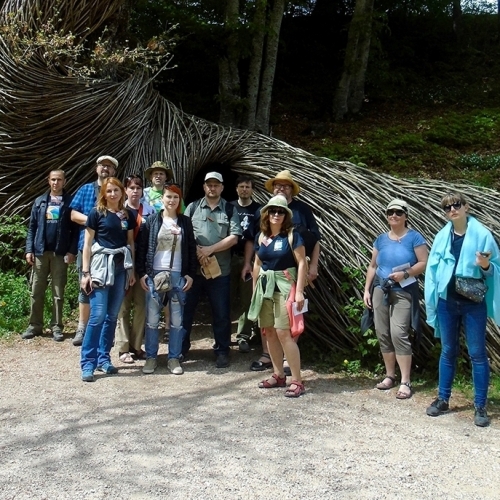AREAS OF INSPIRATION. Creative approaches for rural development.
Dates: 22-29.06.25
Type: study-tour
Group: 11 people
Price: 1190 €
The main aim of study tours is to allow specialists from various cultural institutions from European Union’s Eastern Partnership (EaP) region: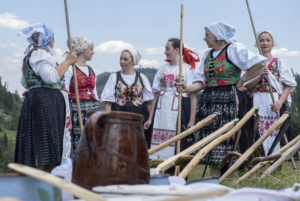 Armenia, Azerbaijan, Georgia, Republic of Moldova and Ukraine learning from experience and know-how of leading Czech and Slovak cultural institutions involved in the process of rural development, creative promotion of remote areas by bloggers and photographers, creating international partnerships and initiating cross-border projects with engaging relevant stakeholders. Machaon International has been organising study-tours since 2008.
Armenia, Azerbaijan, Georgia, Republic of Moldova and Ukraine learning from experience and know-how of leading Czech and Slovak cultural institutions involved in the process of rural development, creative promotion of remote areas by bloggers and photographers, creating international partnerships and initiating cross-border projects with engaging relevant stakeholders. Machaon International has been organising study-tours since 2008.
The study-tour to Slovakia and the Czech Republic will cover four interrelated thematic segments and use competences and experience gained through the 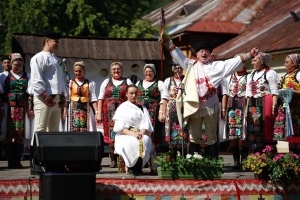 implementation of cultural projects as well as wide contacts with many cultural institutions operating in rural areas and towns. All topics of the study-tour support culture as a strategic resource for sustainable development in rural areas. The issues addressed by above-mentioned themes are of high relevance for the EaP region, as they contribute to sustainable income generation and employment opportunities in the cultural sector and support of rural development.
implementation of cultural projects as well as wide contacts with many cultural institutions operating in rural areas and towns. All topics of the study-tour support culture as a strategic resource for sustainable development in rural areas. The issues addressed by above-mentioned themes are of high relevance for the EaP region, as they contribute to sustainable income generation and employment opportunities in the cultural sector and support of rural development.
The first theme deals with art creation and art presentation at various scales and their impact on regional development. Participants will visit 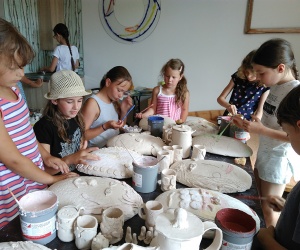 several art galleries and rural art-residencies. Special attention will be paid to show several successful cultural actors in the region of Spis. First, it is Tatra gallery in the town of Poprad, considered as one of the best art venues in Slovakia. Its building was transformed from a former power plant into exclusive exhibition spaces hosting regularly art works from Slovakia and abroad. The gallery is also an active player in local culture and experienced in international cooperation across Europe. We will visit also AnnoGallery, example of a small private art center, which organises very successful creative summer camps for children (market-oriented model) in a small village as well as village Ganovce, which hosts regular socially-oriented art symposia and plain air events, exemplifying effective cooperation in culture between local municipality and locally active NGOs with active participation and support of local citizens. We will show that when professional artists and creative people come to villages, this can help to improve socio-economic conditions and to promote these areas as attractive setting for creativity and recreation (enhancing cultural tourism). We will demonstrate successful results of the project Areas of Inspiration supported by Creative Europe programme.
several art galleries and rural art-residencies. Special attention will be paid to show several successful cultural actors in the region of Spis. First, it is Tatra gallery in the town of Poprad, considered as one of the best art venues in Slovakia. Its building was transformed from a former power plant into exclusive exhibition spaces hosting regularly art works from Slovakia and abroad. The gallery is also an active player in local culture and experienced in international cooperation across Europe. We will visit also AnnoGallery, example of a small private art center, which organises very successful creative summer camps for children (market-oriented model) in a small village as well as village Ganovce, which hosts regular socially-oriented art symposia and plain air events, exemplifying effective cooperation in culture between local municipality and locally active NGOs with active participation and support of local citizens. We will show that when professional artists and creative people come to villages, this can help to improve socio-economic conditions and to promote these areas as attractive setting for creativity and recreation (enhancing cultural tourism). We will demonstrate successful results of the project Areas of Inspiration supported by Creative Europe programme.
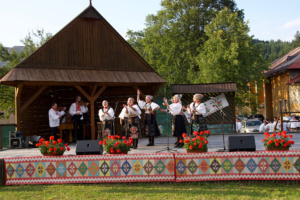 The second theme is the organization of large-scale events such as festivals, crafts fairs, folklore programmes which revive often forgotten traditional technologies, folk art and folk traditions as well as enhance social life, local business activities and experience of participants. Revival of crafts and marketing of folk art products would be also demonstrated to the study-tour participants. The biggest folklore festival Straznice in Central Europe will be visited to see the performances of folklore ensembles and organizational background. Participants of the study tour will get opportunity to explore innovative approaches how to organise festivals in manner
The second theme is the organization of large-scale events such as festivals, crafts fairs, folklore programmes which revive often forgotten traditional technologies, folk art and folk traditions as well as enhance social life, local business activities and experience of participants. Revival of crafts and marketing of folk art products would be also demonstrated to the study-tour participants. The biggest folklore festival Straznice in Central Europe will be visited to see the performances of folklore ensembles and organizational background. Participants of the study tour will get opportunity to explore innovative approaches how to organise festivals in manner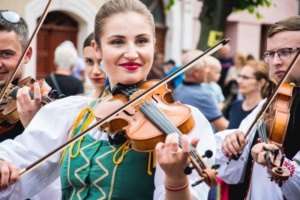 attractive for young generation.
attractive for young generation.
The third theme is the revival of traditional crafts and festivals organisation. In the framework of study-tour, seminar ‘Guardians of heritage’ (‘Authentic crafts as cultural heritage’) will be organized by National Institute of Folk Culture of the Czech Republic (NULK) there the participants of study-tour will have an opportunity to explore rich experience of NULK in the revival of traditional crafts (i.e. production from wood and fleece) and to learn about the system of marketing support for craft 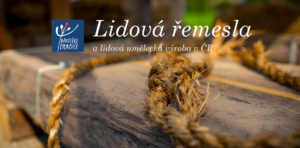 masters (e.g. internet and handicraft shops, label of ‘Guardians of heritage’, participation at fairs, etc.). The revival of handicraft traditions has high social impact for life in rural areas in general and, specifically, in diversifying income sources for rural families. Materials, techniques and patterns are inspired by nature and are given added value with the accumulated experience and knowledge of the ancestors during centuries of history.
masters (e.g. internet and handicraft shops, label of ‘Guardians of heritage’, participation at fairs, etc.). The revival of handicraft traditions has high social impact for life in rural areas in general and, specifically, in diversifying income sources for rural families. Materials, techniques and patterns are inspired by nature and are given added value with the accumulated experience and knowledge of the ancestors during centuries of history.
The fourth topic is the support gastronomy and traditional culinary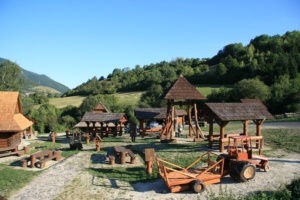 in rural areas. Within this theme, meeting with specialists in the field of conservation and promotion of culinary heritage, managers of successful restaurants and cultural actors will be organised. For example, Salas Krainka is famous for Slovak cuisine presented in the folk wooden buildings, unique art-exposition and for solutions to sustain landscape harmony through sheep grazing. In addition, several innovation approaches how to promote culinary heritage through involvement of cultural actors will be presented.
in rural areas. Within this theme, meeting with specialists in the field of conservation and promotion of culinary heritage, managers of successful restaurants and cultural actors will be organised. For example, Salas Krainka is famous for Slovak cuisine presented in the folk wooden buildings, unique art-exposition and for solutions to sustain landscape harmony through sheep grazing. In addition, several innovation approaches how to promote culinary heritage through involvement of cultural actors will be presented.
The programme of the study tour is designed to allow participants from the EaP region to learn from visiting actual relevant sites and institutions as well as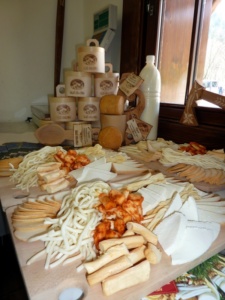 from interaction with responsible people in these institutions and active discussion with Slovak and Czech partners about possible ideas to be transferred into the EaP region and possibilities and opportunities for future projects under the Creative Europe programme. Each theme of the study-tour programme will also demonstrate participatory dialogue with public authorities responsible for culture and creativity development on a regional and local levels.
from interaction with responsible people in these institutions and active discussion with Slovak and Czech partners about possible ideas to be transferred into the EaP region and possibilities and opportunities for future projects under the Creative Europe programme. Each theme of the study-tour programme will also demonstrate participatory dialogue with public authorities responsible for culture and creativity development on a regional and local levels.
Working Languages: Russian, Slovak, Czech, English
Cost of the programme:
1190 EUR covers study-programme with translation to Russian or English language, package of training materials and publications, accommodation 2* (2 people in the room), meals 3x per day, local transfers, 2x thermal swimming pool.
We provide discount 10% in cases:
- the trainee is less than 30 years old
- the organisation sends more than two participants to participate in the study-tour
Travel expenses to EU, visa cost, medical insurance participants cover by themselves.

